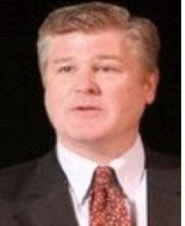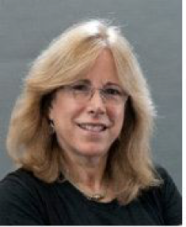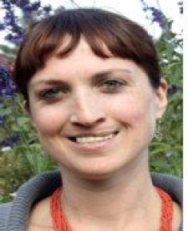On Tuesday, May 17, 2016, I moderated a panel on this subject for the Boston Entrepreneurs’ Network (ENET) on this subject at the group’s Cambridge location: then Microsoft Technology Center, Kendall Square.
The article I prepared for the meeting, published in the Reflector, and posted on the ENET website, was as follows:
Money and profits, income, and shareholder return, drive many, and perhaps most U.S. companies. As the fictional Gordon Gekko long ago said in the film “Wall Street” – “Greed is good…it’s all about bucks” Yet, that is not so for all U.S. companies. Some companies seek an integration of both financial and other returns into the management of enterprises. This perspective can enhance financial returns while providing more benefit for non-owner stakeholders. For many of these companies and entrepreneurs, there is a “triple bottom line”, that of the three P’s:
People: Social change & justice, employee well-being, governance, ownership, community involvement, philanthropy, legacy, and service;
Planet: Building performance standards, resilience, company carbon footprints, and environmental restoration;
Profits: Financial success and stability, growth, capitalization, sales and marketing, investment.
ENET’s meeting on May 17 will have three speakers who have each worked in the field of social impact entrepreneurship, who will share their experiences. One speaker is a noted serial entrepreneur whose companies are known for their social awareness; a second speaker heads the program at Babson College focused on social entrepreneurship; our third speaker is VP of Innovation and Social Impact at her company. Her company was one of the first certified New Hampshire “B” corporations, whose mission is the triple bottom line. Our moderator is ENET’s chairman who recently received the award from IEEE-USA for contributions to the IEEE entrepreneurial community. This is a night for entrepreneurs interested in giving back to the community as part of our business model – hope you can join us.
I was a speaker as well as organizer and moderation. I concluded the proceedings speaking about “Benefit Corporations in Massachusetts and Certified B Corps Worldwide”
My overview of Benefit Corporations in Massachusetts included the following topics:
- How benefit corporations are different than Mass. non-profit corporation
- How benefit corporations are different than Mass. for-profit corporation
- LLCs, partnerships as non-statutory “certified B corps”
- Statutory benefit corporations incorporation under MGL ch. 156E
- Key components of Mass. benefit corporation
- Changing to 156E corporation
- Annual Reporting
- Enforcement
My overview of Certified B Corps as part of the worldwide private certification included the following topics:
- B Lab & its certification process
- Eligible businesses
- Requirements for certification
- Maintaining certification
- Worldwide movement
To see my slides, from this event go to
or
Benefit Corporations in Massachusetts and Certified B Corps Worldwide by Robert Adelson
Prior to my closing presentation on legal matters, I had recruited three excellent speakers, all with deep business experience with benefit corporations.
Guest Speakers Panel:
(including partial biographies of three guest speakers as compiled in May 2016)
 Mark Donohue is a lifetime entrepreneur. Since the late 1980’s, he has been a pioneer in “triple-bottom-line” business, Cleantech and “impact” investing, within both the venture capital and PE worlds. He has held CEO roles in numerous enterprises endeavoring to “Do Well, while Doing Good.” In Sept of 2013, he was appointed Chairman & CEO of Sheffield Pharmaceuticals (www.sheffieldpharma.com). The company specializes in health & beauty care products since 1850. Sheffield manufactures for Walmart/CVS/Walgreens, does contract packaging for entrepreneurs, owns the “Dr. Sheffield” brands, and has company-owned brands, such as Bioroot All-Natural Hair Growth and Tanner’s Tasty Paste. It products are in 70,000 US stores and the company employs over 200. Mark also serves as Co-Chairman of Faria Beede Instruments, which is the leading provider of gauges/controls in the C&I and marine sectors, plus is a leading IoT and telematics player. Faria employs 200. He is also Managing Partner of Catalyst Insight Partners, where Mark partners with entrepreneurs to accelerate growth, improve profitability and optimize financial exits. Previously, in 2001, he was the Founder of Expansion Capital, a leading Silicon Valley pioneer in Cleantech investing, which manages $100,000,000+. He has been Chair Emeritus since April of 2008. In January of 2011, Mark was honored as one of the “Top 100 Thought Leaders in Trustworthy Business Behavior” by Trust Across America. Mark earned his BS, with honors, from Babson in 1988. He served on the Board of Overseers from 2002-2011. In September, 2010, he was honored by Babson with a “distinguished lifetime service to the college” award. ( https://www.linkedin.com/in/marktdonohue)
Mark Donohue is a lifetime entrepreneur. Since the late 1980’s, he has been a pioneer in “triple-bottom-line” business, Cleantech and “impact” investing, within both the venture capital and PE worlds. He has held CEO roles in numerous enterprises endeavoring to “Do Well, while Doing Good.” In Sept of 2013, he was appointed Chairman & CEO of Sheffield Pharmaceuticals (www.sheffieldpharma.com). The company specializes in health & beauty care products since 1850. Sheffield manufactures for Walmart/CVS/Walgreens, does contract packaging for entrepreneurs, owns the “Dr. Sheffield” brands, and has company-owned brands, such as Bioroot All-Natural Hair Growth and Tanner’s Tasty Paste. It products are in 70,000 US stores and the company employs over 200. Mark also serves as Co-Chairman of Faria Beede Instruments, which is the leading provider of gauges/controls in the C&I and marine sectors, plus is a leading IoT and telematics player. Faria employs 200. He is also Managing Partner of Catalyst Insight Partners, where Mark partners with entrepreneurs to accelerate growth, improve profitability and optimize financial exits. Previously, in 2001, he was the Founder of Expansion Capital, a leading Silicon Valley pioneer in Cleantech investing, which manages $100,000,000+. He has been Chair Emeritus since April of 2008. In January of 2011, Mark was honored as one of the “Top 100 Thought Leaders in Trustworthy Business Behavior” by Trust Across America. Mark earned his BS, with honors, from Babson in 1988. He served on the Board of Overseers from 2002-2011. In September, 2010, he was honored by Babson with a “distinguished lifetime service to the college” award. ( https://www.linkedin.com/in/marktdonohue)
 Cheryl Kiser, Executive Director of The Lewis Institute for Social Innovation and The Babson Social Innovation Lab, Cheryl is responsible for promoting Babson’s work in integrating social innovation and social entrepreneurship into its curriculum and co-curricular activities. Before coming to Babson, Cheryl was the Managing Director of the Boston College Center for Corporate Citizenship. She is one of the leading voices in the U.S. on the role of business in society, and has won awards for her public affairs campaigns. For over a decade she managed the content and delivery of the largest annual conference in the world on corporate citizenship, the International Corporate Citizenship Conference which drew representatives from over one third of the Fortune 500 and from 24 countries around the globe. Prior to Boston College, Cheryl was the Director of Marketing for Work Family Directions, the leading provider of work life programs. Cheryl also has a passion for healthy living. She is co-creator of Food Sol an “action tank” at Babson’s Social Innovation Lab dedicated to using entrepreneurship to redesign the food system. ( www.babson.edu/Academics/centers/the-lewis-institute )
Cheryl Kiser, Executive Director of The Lewis Institute for Social Innovation and The Babson Social Innovation Lab, Cheryl is responsible for promoting Babson’s work in integrating social innovation and social entrepreneurship into its curriculum and co-curricular activities. Before coming to Babson, Cheryl was the Managing Director of the Boston College Center for Corporate Citizenship. She is one of the leading voices in the U.S. on the role of business in society, and has won awards for her public affairs campaigns. For over a decade she managed the content and delivery of the largest annual conference in the world on corporate citizenship, the International Corporate Citizenship Conference which drew representatives from over one third of the Fortune 500 and from 24 countries around the globe. Prior to Boston College, Cheryl was the Director of Marketing for Work Family Directions, the leading provider of work life programs. Cheryl also has a passion for healthy living. She is co-creator of Food Sol an “action tank” at Babson’s Social Innovation Lab dedicated to using entrepreneurship to redesign the food system. ( www.babson.edu/Academics/centers/the-lewis-institute )
 Rebecca Hamilton, Co-Owner/VP of Research and Development, WS Badger Company. Staff profiles also list her as “VP of Innovation and Social Impact”. In her role, Rebecca directs project-based teams of highly skilled researchers and chemists both at Badger and at external laboratories. She oversees all internal Quality Assurance, Regulatory, Research, and Product Development teams for a company that makes healing balms, lip balms, safe mineral sunscreens and other personal care products, mainly from an environmentally-friendly facility in Gilsum, New Hampshire. Family owned, the company prides itself on maintaining a healthy community-minded business with ethical and charitable social principles. Rebecca worked directly with NH State Senator Molly Kelly to help pass the NH Benefit Corp Legislation. WS Badger was one of the first certified B corporations in New Hampshire. Rebecca is author of 5 Reasons Why the Safe Cosmetics Act Makes Sense for Small Business (GreenBiz 2011). In college at University of Massachusetts, Rebecca was Co-Chair of the Amherst Fair Trade Town committee, and recipient of both the school’s humanitarian award and 2009 Award for Outstanding Community Service and Engagement. Rebecca has also been a Wilderness expedition leader in Vermont and professional sailor in the Caribbean. (www.badgerbalm.com)
Rebecca Hamilton, Co-Owner/VP of Research and Development, WS Badger Company. Staff profiles also list her as “VP of Innovation and Social Impact”. In her role, Rebecca directs project-based teams of highly skilled researchers and chemists both at Badger and at external laboratories. She oversees all internal Quality Assurance, Regulatory, Research, and Product Development teams for a company that makes healing balms, lip balms, safe mineral sunscreens and other personal care products, mainly from an environmentally-friendly facility in Gilsum, New Hampshire. Family owned, the company prides itself on maintaining a healthy community-minded business with ethical and charitable social principles. Rebecca worked directly with NH State Senator Molly Kelly to help pass the NH Benefit Corp Legislation. WS Badger was one of the first certified B corporations in New Hampshire. Rebecca is author of 5 Reasons Why the Safe Cosmetics Act Makes Sense for Small Business (GreenBiz 2011). In college at University of Massachusetts, Rebecca was Co-Chair of the Amherst Fair Trade Town committee, and recipient of both the school’s humanitarian award and 2009 Award for Outstanding Community Service and Engagement. Rebecca has also been a Wilderness expedition leader in Vermont and professional sailor in the Caribbean. (www.badgerbalm.com)
For those of my clients who have interest in social entrepreneurship, I hope this past ENET presentation and my slides from this event will be of benefit. If you have any questions or needs in this field, please do let me know.

No comments:
Post a Comment